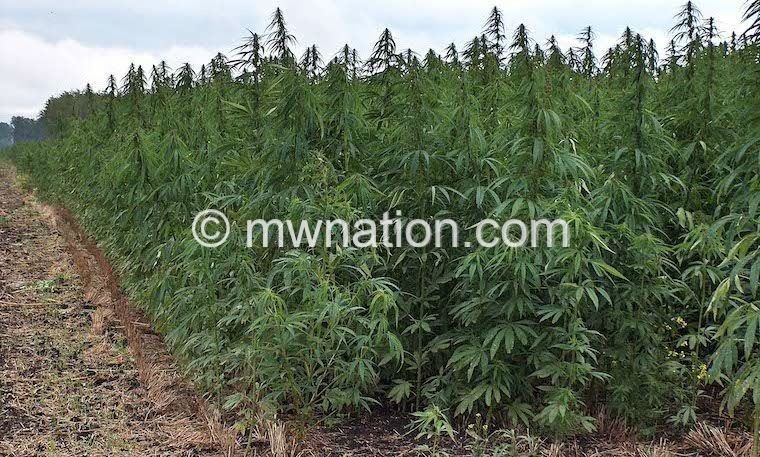Slow start to cannabis production— authority
The Cannabis Regulatory Authority (CRA) licensed 126 companies and cooperatives to venture into industrial hemp cultivation, but only 12 have rolled out, representing nine percent, it has emerged.
CRA acting director Ketulo Salipira confirmed the development in an interview, but said the authority is not losing sleep over the slow start as they already anticipated it.

He said: “It’s an industry that requires a lot of things to be put in place. We have to get certified for the buyers to buy and also set up marketing strategies. But we are slowly gaining some ground. I think by next year we should have a better direction.”
The hemp—a strain of the cannabis plant that contains little or no substance that makes people high—has the potential to replace tobacco as the country’s main export crop.
The country’s tobacco earnings have been declining over the years due to falling demand as anti-tobacco lobbyists have been intensifying their campaign against it. Poor weather has been another contributing factor, agriculturists point out.
The 2020 season was the worst for tobacco as output fell by 31.3 percent, resulting in a 26.4 percent crash in the country’s overall tobacco revenues.
Salipira said they will not put the licensees under pressure to roll out production as they need a chance to lay solid foundations.
He said: “Production started by some companies and cooperatives. We have few who are coming on board and building facilities for production.
“We have not given the deadlines to roll out production because it has to do with their financial capacity, technical knowledge and the like. So, they are doing things at the pace which they can manage.”
Last year, the Ministry of Agriculture wrote former world heavyweight champion Mike Tyson to become Malawi cannabis ambassador, but he is yet to respond to the request.
Salipira said although Tyson could have an influence in marketing the cannabis, he feared he might be too occupied to make a commitment.
“He is someone who can help us market our cannabis. We, however, should also understand that these people are busy. But if he has an opportunity, he should be able to support us,” he said.
Meanwhile, the ministry’s spokesperson Gracian Lungu said they have already started marketing cannabis abroad.
He said: “We have been undertaking a series of exhibitions on international fairs held in South Africa late last year and the CRA team also attended an Expo in Dubai some months ago to promote our cannabis.
“Some companies have already started exporting cannabis samples to some European countries and as a ministry, we did facilitate the exports. This gives us another opportunity to promote our cannabis.”
But agriculture economist Wisdom Mgomezulu has warned that the country faces an uphill task to succeed with cannabis production and sale as it requires substantial investment.
He said: “Malawi is producing medicinal cannabis which is different from the other types. You cannot grow it outside. You basically need a greenhouse where you use artificial light.
“Setting up a greenhouse is expensive. That is why many cooperatives have to come together. The cost of production is way too much and some of the farmers are just realising this now. And, it is not surprising, therefore, that only a few licensed firms have started.”
Mgomezulu, a lecturer at Lilongwe University of Agriculture and Natural Resources, said government should help “farmers to secure financial services that can aid in their course of production”.
He said: “Studies have shown that the industry is beneficial and, in terms of the profits, they are way too good but obviously you do not just reap profits where you are not investing.”
Recently, the authority announced that it would reduce the licensing fee for industrial hemp production to encourage local farmers to grow the crop.
The authority’s board chairperson Boniface Kadzamira said industrial hemp is easy to produce as it grows in open spaces while medicinal hemp is produced under regulated conditions.






One Comment